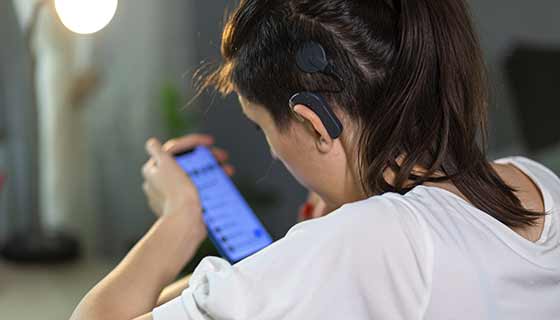4 Ways to Protect Your Hearing
Loud noise can be very damaging to your hearing, whether it’s a loud burst or years of prolonged exposure. Sounds are measured in decibels, and those exceeding 85 decibels can hurt your ears — permanently. Common sources of loud noise include lawn mowers (106 decibels), fireworks (150 decibels) and rock concerts (120 decibels).
Approximately 15 percent of adults 18 years of age or older report some trouble hearing, and the risk rises as we age. Up to 39 percent of adults in their sixties are having problems hearing. The good news is that taking action now may protect you from hearing loss later in life.

Consider taking the following steps:
Get a baseline hearing test.
Most adults have never had a hearing test, but it pays to buck that trend. At your next annual physical, ask for a hearing test as part of your routine checkup. A hearing test gives your audiologist a baseline that they can compare with future results to monitor the progression of hearing loss.
Wear protective hearing gear.
When you are in a noisy environment, wear protective hearing gear such as earplugs or protective earphones. You likely can find ear plugs at your local drugstore or music supply shop, but you can also ask your audiologist for more information. For people who are regularly exposed to noise, your audiologist may recommend custom ear plugs. Think “ear protection” before you’re exposed to any noisy environment, such as:
Rock concerts or any type of loud performance
Construction sites
Noisy workplaces
Airports or train and bus stations
Lawn mowing or leaf blowing
Auto racing
Hunting or shootingMonitor the volume of your devices.
While you are watching TV or using mobile devices, keep the volume at a comfortable level. It should be loud enough that you do not need to strain to hear, but not so loud that when you leave the room, you can still hear it from another part of your home.
Have custom molds made for your earphones.
If you often listen to music on earphones using a portable music or video device, it’s a good idea to have custom earphone molds made. There are relatively inexpensive custom ear molds that conform to the unique shape of your ear canal and attach to the earphone’s wires. You will find the sound truly superior as the custom ear molds will block outside noise, allowing for better quality listening.
A variety of custom ear molds are available for use with earphones, while others are designed for musicians and people who are exposed to noise. Your audiologist can help you select the best style for you.





